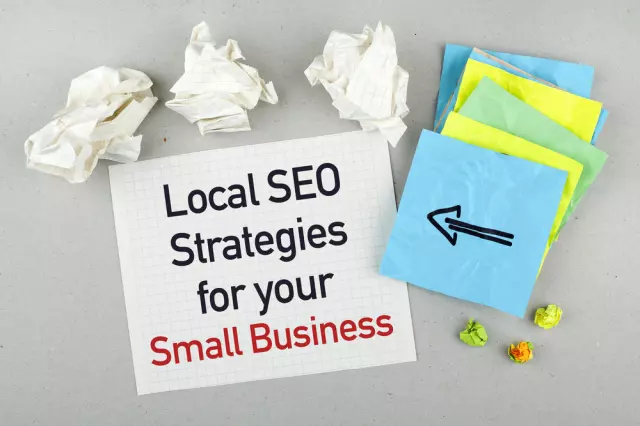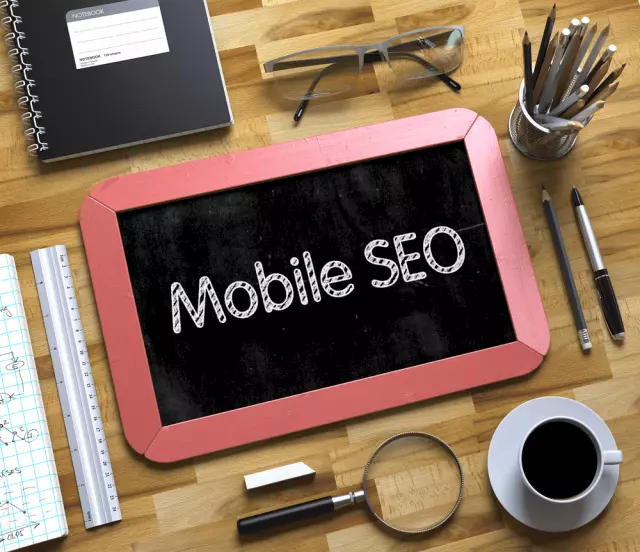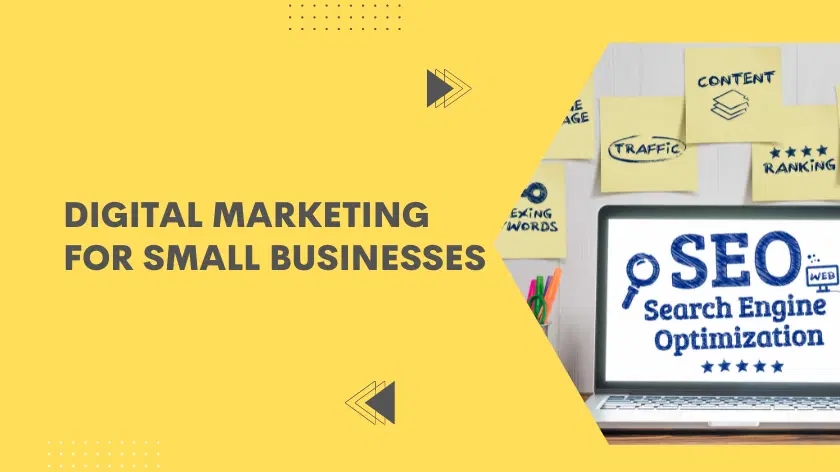Ultimate Tricks & Tips for Small Business SEO

Search Engine Optimization or Small Business SEO has become a necessity in one way or another for every website seeking success online. You can, of course, find someone, or a company that specializes in SEO and pay to appear higher in the Search Engine Result Pages.
Just be sure that they are not getting you blacklisted from the Search Engines by using Blackhat techniques that the Search giants will absolutely penalize you for.
SEO Legends & Myths
Digital Marketing is not as esoteric as some agencies and consultants want you to believe. SEO is not an urban legend or secret witchcraft, although I do feel as though you need a superior understanding of what actual search optimization is. You can discover, learn and gain knowledge of best practices and guidelines that work well for your properties by research and educating yourself.
The myth is that you have to pay to get good results. However, that is just not true. Organic search results are more prevalent and possible than you might believe. Don’t start stuffing your pages or profiles with keywords or phrases that you think will get you higher results.
This can somewhat backfire and have the reverse effects, as search engines are very keen to these non-authentic tactics, not to mention it is annoying to your visitors. So in short, don’t be foolish — be intelligent.
Small Business SEO Tips You Need to Know

Proper optimization with SEO starts of course with your website content itself. You do not need crazy amounts of keywords, phrases, or meta descriptions to get great results. Meta descriptions can still be used to your advantage.
When your site shows up in search engine result pages, the meta description will show as the truncated byline under your page title on the search results pages.
The meta description can also be utilized by your social networks when you or someone else shares your page. Keep that in mind for gaining the attention of your customers, not the search engines. Page title tag optimization is often either overlooked or misunderstood.
The Page Title should ALWAYS be relevant to the content on the respective page. Too often I see sites that will place their company or organization name first in the title tag. Your first three words in every page title should be indicative of the pages’ content.
The title that you use is not only what shows in the search results, but also in social previews. With the possible exception of your home page, you do not need to include your business or organization name in the title tag.
Think in regards to what words or phrase that someone might “Google” and hopefully they will land on your page as a result of their search.
As mentioned earlier under Social Media Optimization; the 2 or 3 sentences that you formulate should be nearly universal to remain consistent when describing your purpose or organizational ambitions. These sentences should also be used in your website on your home page itself. Don’t create such diverse descriptions across your channels that you both confuse and contrive the opinions of your visitors.
Although each page in your website truly needs its own description, consistency is the key in your content and your organizational voice on each page becomes the narrative focus. Although individually different, it is important to maintain a consistent tone across your entire site and various channels.
It is important to optimize your site content by using the first paragraph, or first few sentences on each page, or each post, to get your message across about what the visitor will find on that page, or what the post is about.
Focus on key phrases that make the most valuable depiction of your content on each respective page. Do not bloat your content, do not insert keywords that don’t actually define what each individual page is about. Content integrity not only builds customer trust but creates valuable organic search optimization.
The content on your pages and posts should have a human feel, and not sound stagnant or make a hollow statement. Websites and social networks are the major media outlets of the world.
Computers and devices get more focus and attention than televisions or radio. You have to create a personality for your brand and convey that persona which reaches your prospects wherever you represent your brand. These are your channels and should be tuned-in to your customers, prospects and visitors.
Going Mobile

An imperative aspect that not only provides ease of use for your visitors but is also significant to Search Engine Result Pages: mobile-friendly webpages. If your site is not mobile-friendly, or responsive yet — you better step it up. Google and Bing have already begun giving favor and precedence to mobile-friendly websites over their desktop-only counterparts. So if your competitors have a mobile-friendly site, and you don’t; they are already ahead of the game, and you are behind the ball.
You can take advantage of many frameworks, toolkits, and website templates that are available for responsive websites. Many of these are free or relatively inexpensive, and seemingly easy to find.
WordPress and Bootstrap are both great examples of where you can start with a mobile-friendly website. If you already have a responsive site, great — you’ve already made a huge step in the right direction. Have you considered working with an SEO company to seek help with your Small Business SEO needs?
Google Knows
Google provides many guides and how-to steps that can be very helpful for your website success. One of the best resources for Search Engine Optimization is, of course, Google themselves. Whether you’re a diehard fan, or you cannot stand Google, you cannot ignore the fact that they essentially have the most reliable advice when it comes to Search Engine Optimization, as well as utilizing your site intelligently.
Google actually provides a mobile-friendly test tool here — Simply type in your URL to analyze a web page and generate a report if the page is mobile-friendly and the tool will give you optimization recommendations.
Make sure that you take some time clicking around the other resources that Google provides in the tab bar. In particular, check out Documentation > Mobile SEO, and read through the various sections on the side navigation. Did we miss out on any Small Business SEO tips? Let us know in the comments section below!









